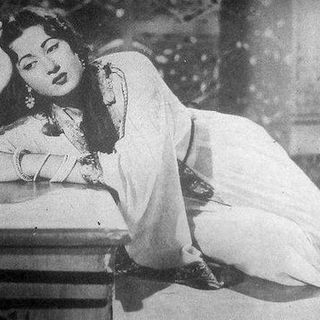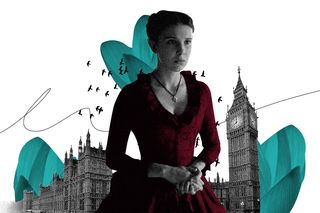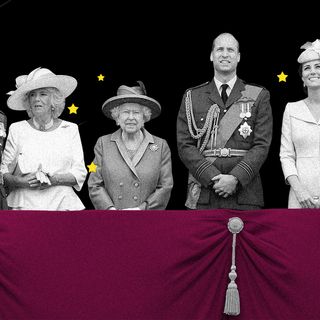
In Enola Holmes, Feminism Is Appropriated From the Marginalized to Become the Privileged Woman’s Adventure
The history of women’s suffrage in the UK is rife with many intertwining factors that complicate the neat idea of a girl genius winning universal franchise for the country overnight.

Geniuses are not born, runs Virginia Woolf’s thesis in A Room of One’s Own, but made entirely by the conditions of their birth. In one section, Woolf conjures up an imaginary sister for The Bard – ‘Judith’ Shakespeare – to illustrate the point that opportunity would have been denied if genius had been born female. Enola Holmes, a similar creation of author Nancy Springer in 2006, is everything Woolf would have wanted for Judith. Previously non-existent in the Sherlock Holmes canon, the young and sprightly Enola Holmes’ story has now been adapted into a successful Netflix production.
Although the fate of the fictional sisters is markedly different, Enola Holmes suffers from the same blindspots as Woolf’s pathbreaking polemic against the many invisible forms of theft of time, labour and energy that women experience. Given the same privileges and entitlements as their male counterparts, Woolf argues, women could be artists and geniuses, too. To aspire to any kind of creative endeavor, one must have money and a room of one’s own. Both of which Enola Holmes – a white, moneyed, educated young woman with considerable social standing owing to her last name – is given almost by default.
Enola Holmes is raised by a single mother who, not keen on sending her to finishing schools and training her in the ways of young ladies, teaches her everything from jujitsu to cryptic word games to pyrotechnics. The home where Enola grows up is one in which her mother allows her to flourish in ways that Judith couldn’t. In this context, Enola’s life is the feminist dream, a freeing, enchanting and healing thing to behold. At first glance.
The story follows the young Holmes outside the safety of her country home, where she encounters adventures very different from the ones she anticipated. Inadvertently, she ends up saving the day, changing the world, and winning handsome reward money to set herself up in London. So far so good. A running undercurrent through the film, however, is the question of women’s suffrage, and the steadfastly apolitical nature of bonafide geniuses who can afford to — as the film’s only black character, Edith, puts it — only be “obsessed with footprints and coaldust.”
Which brings us to Edith. Sans famous surname, she runs a tearoom which doubles as a jujitsu studio for young women keen on joining the revolution, with the promise of universal franchise in the air. But how universal is the franchise? The reform bill at the heart of the film, set in 1884, granted the vote to propertied women over 30 — therefore, inherent in it was systemic racism that excluded most women of color. This, despite the fact that the movement constituted several women of color from within and abroad.
In arguably one of its most important moments, the film depicts Edith educating Sherlock Holmes on changing a world that doesn’t suit him, even as it glosses over the fact that she is not one of the constituents the reform bill in question benefits. Their dialogue on politics, revolution, and the necessity of it all ends with an exasperated Edith stalking off for “customers to serve, cakes to bake.” It’s clear which women get a room of their own.
Revolution in the film is thus appropriated from working-class women of color, and extended instead to women who indulge in it for their beliefs or coming-of-age journeys, rather than survival. The story then leaves Edith by the wayside; she is someone with a lot more at stake, but whose interests are conflated with those of propertied white women, as far as the film is concerned. The history of women’s suffrage in the UK is rife with many intertwining factors that complicate the neat, gift-wrapped idea of an underestimated girl detective incidentally winning universal franchise for the country overnight. The question of women’s suffrage was not nearly as simple as a matter of deadlock in the House of Lords, as the film suggests.
Just as Woolf bemoans women taking up masculine pseudonyms to write fiction, the history of women’s suffrage in England is afflicted by the prevalence of white-sounding names adopted by women of colour, thereby erasing them in a way that makes such a colourblind narrative possible. Edith, whose name is indistinguishable from her white counterparts, does the punishing work of fighting for universal franchise while trying to create for herself the material conditions to do so. Enola, who has inherited these conditions, gets to have a quirky name which stands out, while not having anything to do with the revolution at all; she only achieves success within it by accident. What does money and a room of one’s own really achieve, then, other than an individualism that seldom breaks the patterns of exclusion which Woolf powerfully denounced? How must the Ediths of the world pursue a path like Enola’s in a society that doesn’t allow them the same access?
Enola, with a childhood untrammeled by race, is free-spirited and spends her money on disguises and swapping clothes with street boys while chasing down murderous hitmen. Giving her polymath older brother a run for his money, Enola is all this and more because of how she was born. Edith, on the other hand, remains a footnote in history as well as in fiction, running a revolutionary tearoom that hosts ideas that she herself is excluded from. Flattening the differences in their circumstances has the unpleasant effect of proffering up Enola as a natural-born genius when, in fact, Edith had the life experience, the maturity, and none of the burdens of white womanhood and respectability to live up to. She is just saddled with a tearoom, instead of a room of her own – which makes all the difference.
Perhaps this might be reading too much into a film that admittedly made for great comfort viewing during a pandemic. Given the timing of its release, however – amid mass unemployment, inequality, death, disease, fascism, and the curtailment of civil liberties in major democracies – the cutesy, lite feminism of Enola Holmes is a balm that only soothes the pain of the current moment and numbs one to the vast and intractable systemic issues that this decade has laid bare. Rejuvenating as it is, it enters an already overflowing repository of such content that lulls us into dreamy contentment that it might just be a matter of a child prodigy with a famous surname traipsing along to get us out of this mess. While Enola Holmes is a lovely and bewitchingly charming spin-off of the beloved canon, it still chooses to tell a story in which massive social change is as easy as the right person having, well, a room of their own.
Rohitha Naraharisetty is a Senior Associate Editor at The Swaddle. She writes about the intersection of gender, caste, social movements, and pop culture. She can be found on Instagram at @rohitha_97 or on Twitter at @romimacaronii.
Related


How One Woman Started Cooking And Sharing Recipes to Bond With Friends Under Lockdown
